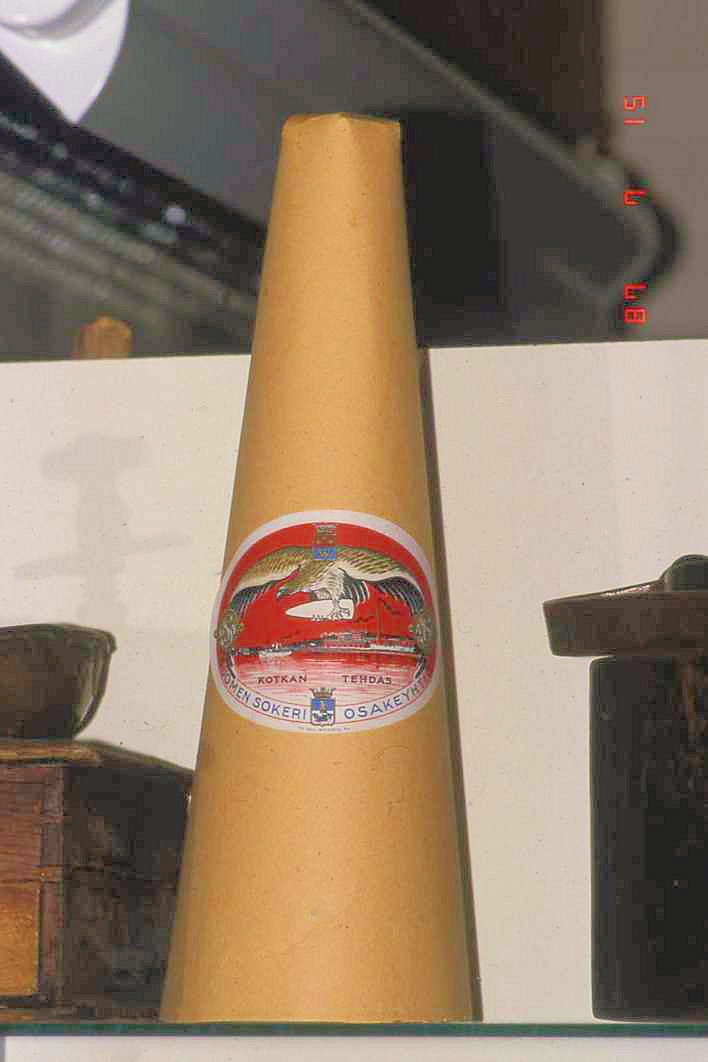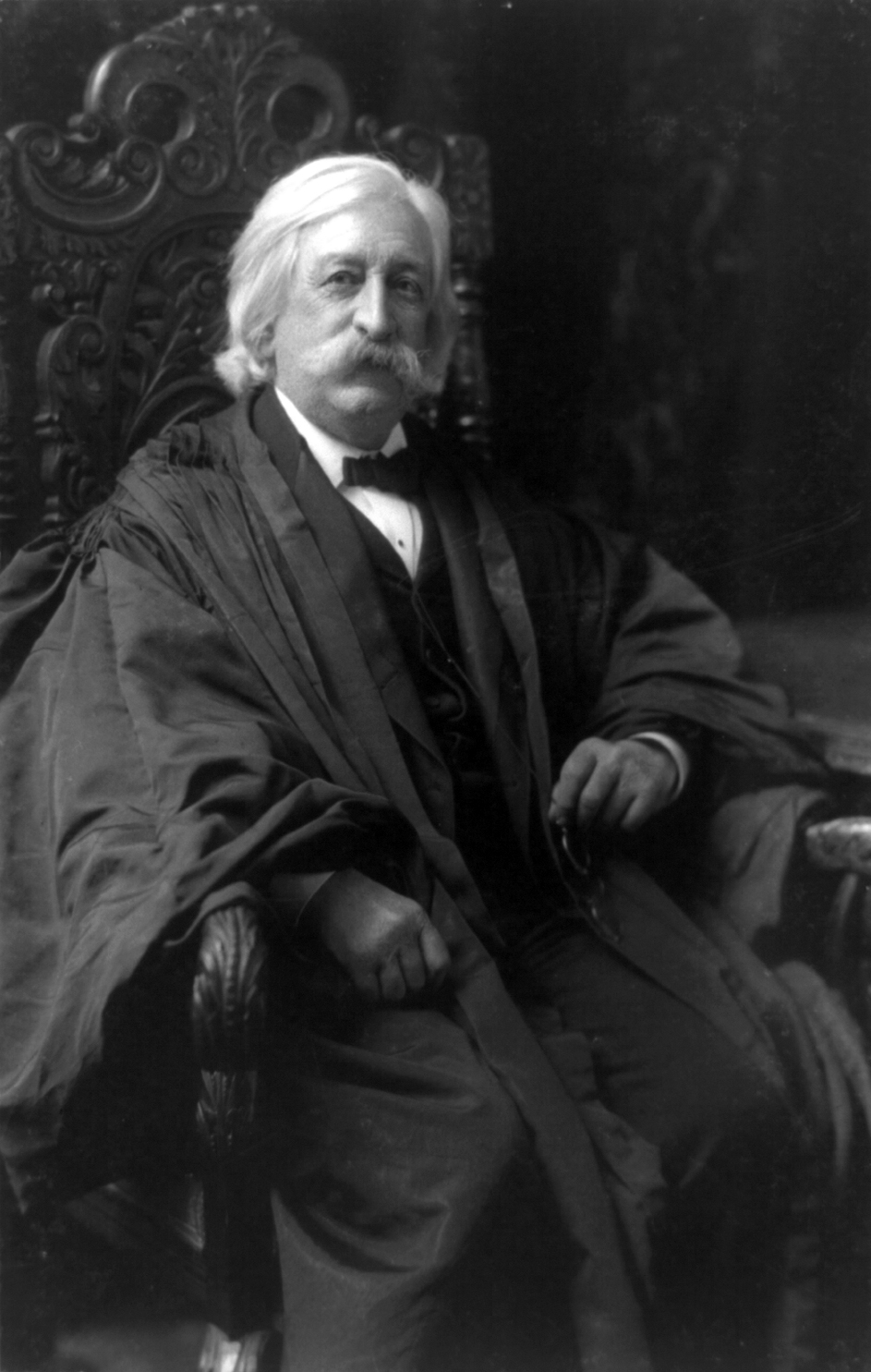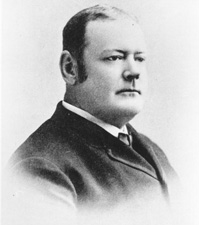|
DeLima V. Bidwell
''DeLima v. Bidwell'', 182 U.S. 1 (1901), was one of a group of the first Insular Cases decided by the US Supreme Court. The case was argued on January 8–11, 1901 and was decided on May 27, 1901. The case is widely considered racist. Background The DeLima Sugar Importing Company sued the New York City collector of customs to recover duties on sugar imported from Puerto Rico after 1899, when Puerto Rico was ceded to the United States. DeLima argued that the Port of New York City had no jurisdiction to collect duties since Puerto Rico had been annexed by the United States. The lower appellate court held the following: # Although the collector had the right to challenge the factual sufficiency, he was barred from challenging federal jurisdiction on the basis of wrongful removal where the case was removed upon his own petition. # The Customs Administrative Act did not decide whether the sugar was imported from a foreign country and so the court case was a proper legal action. # Pu ... [...More Info...] [...Related Items...] OR: [Wikipedia] [Google] [Baidu] |
Insular Cases
The Insular Cases are a series of opinions by the Supreme Court of the United States in 1901 about the status of U.S. territories acquired in the Spanish–American War. Some scholars also include cases regarding territorial status decided up until 1914, and others include related cases as late as 1979. When the war ended in 1898, the United States had to answer the question of whether or not people in newly acquired territories were citizens, a question the country had never faced before. The preliminary answer came from a series of Supreme Court rulings, now known as the Insular Cases, which responded to the question of how American constitutional rights apply to those in United States territories. The Supreme Court held that full constitutional protection of rights does not automatically (or ''ex proprio vigore''—i.e., of its own force) extend to all places under American control. This meant that inhabitants of unincorporated territories such as Puerto Rico—"even if they are ... [...More Info...] [...Related Items...] OR: [Wikipedia] [Google] [Baidu] |
Dissenting Opinion
A dissenting opinion (or dissent) is an opinion in a legal case in certain legal systems written by one or more judges expressing disagreement with the majority opinion of the court which gives rise to its judgment. Dissenting opinions are normally written at the same time as the majority opinion and any concurring opinions, and are also delivered and published at the same time. A dissenting opinion does not create binding precedent nor does it become a part of case law, though they can sometimes be cited as a form of persuasive authority in subsequent cases when arguing that the court's holding should be limited or overturned. In some cases, a previous dissent is used to spur a change in the law, and a later case may result in a majority opinion adopting a particular understanding of the law formerly advocated in dissent. As with concurring opinions, the difference in opinion between dissents and majority opinions can often illuminate the precise holding of the majority opi ... [...More Info...] [...Related Items...] OR: [Wikipedia] [Google] [Baidu] |
United States Supreme Court Cases Of The Fuller Court
United may refer to: Places * United, Pennsylvania, an unincorporated community * United, West Virginia, an unincorporated community Arts and entertainment Films * ''United'' (2003 film), a Norwegian film * ''United'' (2011 film), a BBC Two film Literature * ''United!'' (novel), a 1973 children's novel by Michael Hardcastle Music * United (band), Japanese thrash metal band formed in 1981 Albums * ''United'' (Commodores album), 1986 * ''United'' (Dream Evil album), 2006 * ''United'' (Marvin Gaye and Tammi Terrell album), 1967 * ''United'' (Marian Gold album), 1996 * ''United'' (Phoenix album), 2000 * ''United'' (Woody Shaw album), 1981 Songs * "United" (Judas Priest song), 1980 * "United" (Prince Ital Joe and Marky Mark song), 1994 * "United" (Robbie Williams song), 2000 * "United", a song by Danish duo Nik & Jay featuring Lisa Rowe Television * ''United'' (TV series), a 1990 BBC Two documentary series * ''United!'', a soap opera that aired on BBC One from 1965-19 ... [...More Info...] [...Related Items...] OR: [Wikipedia] [Google] [Baidu] |
United States Supreme Court Cases
This page serves as an index of lists of United States Supreme Court cases. The United States Supreme Court is the highest federal court of the United States. By Chief Justice Court historians and other legal scholars consider each Chief Justice of the United States who presides over the Supreme Court of the United States to be the head of an era of the Court. These lists are sorted chronologically by Chief Justice and include most major cases decided by the Court. * Jay, Rutledge, and Ellsworth Courts (October 19, 1789 – December 15, 1800) * Marshall Court (February 4, 1801 – July 6, 1835) * Taney Court (March 28, 1836 – October 12, 1864) * Chase Court (December 15, 1864 – May 7, 1873) * Waite Court (March 4, 1874 – March 23, 1888) * Fuller Court (October 8, 1888 – July 4, 1910) * White Court (December 19, 1910 – May 19, 1921) * Taft Court (July 11, 1921 – February 3, 1930) * Hughes Court (February 24, 1930 – June ... [...More Info...] [...Related Items...] OR: [Wikipedia] [Google] [Baidu] |
Legal History Of Puerto Rico
Law is a set of rules that are created and are enforceable by social or governmental institutions to regulate behavior,Robertson, ''Crimes against humanity'', 90. with its precise definition a matter of longstanding debate. It has been variously described as a science and as the art of justice. State-enforced laws can be made by a group legislature or by a single legislator, resulting in statutes; by the executive through decrees and regulations; or established by judges through precedent, usually in common law jurisdictions. Private individuals may create legally binding contracts, including arbitration agreements that adopt alternative ways of resolving disputes to standard court litigation. The creation of laws themselves may be influenced by a constitution, written or tacit, and the rights encoded therein. The law shapes politics, economics, history and society in various ways and serves as a mediator of relations between people. Legal systems vary between jurisdictions ... [...More Info...] [...Related Items...] OR: [Wikipedia] [Google] [Baidu] |
Law Of Insular Areas Of The United States
Law is a set of rules that are created and are enforceable by social or governmental institutions to regulate behavior,Robertson, ''Crimes against humanity'', 90. with its precise definition a matter of longstanding debate. It has been variously described as a science and as the art of justice. State-enforced laws can be made by a group legislature or by a single legislator, resulting in statutes; by the executive through decrees and regulations; or established by judges through precedent, usually in common law jurisdictions. Private individuals may create legally binding contracts, including arbitration agreements that adopt alternative ways of resolving disputes to standard court litigation. The creation of laws themselves may be influenced by a constitution, written or tacit, and the rights encoded therein. The law shapes politics, economics, history and society in various ways and serves as a mediator of relations between people. Legal systems vary between jurisdictions, ... [...More Info...] [...Related Items...] OR: [Wikipedia] [Google] [Baidu] |
History Of Sugar
Sugar was first produced from sugarcane plants in India sometime after the first century AD. The derivation of the word "sugar" is thought to be from Sanskrit (''śarkarā''), meaning "ground or candied sugar," originally "grit, gravel". Sanskrit literature from ancient India, written between 1500 - 500 BC provides the first documentation of the cultivation of sugar cane and of the manufacture of sugar in the Bengal region of the Indian subcontinent. The history of sugar has five main phases: # The extraction of sugar cane juice from the sugarcane plant, and the subsequent domestication of the plant in tropical India and Southeast Asia sometime around 4,000 BC. # The invention of manufacture of cane sugar granules from sugarcane juice in India a little over two thousand years ago, followed by improvements in refining the crystal granules in India in the early centuries AD. # The spread of cultivation and manufacture of cane sugar to the medieval Islamic world together with som ... [...More Info...] [...Related Items...] OR: [Wikipedia] [Google] [Baidu] |
Sugar Industry In Puerto Rico
Sugar is the generic name for sweet-tasting, soluble carbohydrates, many of which are used in food. Simple sugars, also called monosaccharides, include glucose, fructose, and galactose. Compound sugars, also called disaccharides or double sugars, are molecules made of two bonded monosaccharides; common examples are sucrose (glucose + fructose), lactose (glucose + galactose), and maltose (two molecules of glucose). White sugar is a refined form of sucrose. In the body, compound sugars are hydrolysed into simple sugars. Longer chains of monosaccharides (>2) are not regarded as sugars, and are called oligosaccharides or polysaccharides. Starch is a glucose polymer found in plants, the most abundant source of energy in human food. Some other chemical substances, such as glycerol and sugar alcohols, may have a sweet taste, but are not classified as sugar. Sugars are found in the tissues of most plants. Honey and fruits are abundant natural sources of simple sugars. Suc ... [...More Info...] [...Related Items...] OR: [Wikipedia] [Google] [Baidu] |
List Of United States Supreme Court Cases, Volume 182
This is a list of cases reported in volume 182 of ''United States Reports'', decided by the Supreme Court of the United States in 1901. Justices of the Supreme Court at the time of volume 182 U.S. The Supreme Court is established by Article III, Section 1 of the Constitution of the United States, which says: "The judicial Power of the United States, shall be vested in one supreme Court . . .". The size of the Court is not specified; the Constitution leaves it to Congress to set the number of justices. Under the Judiciary Act of 1789 Congress originally fixed the number of justices at six (one chief justice and five associate justices). Since 1789 Congress has varied the size of the Court from six to seven, nine, ten, and back to nine justices (always including one chief justice). When the cases in volume 182 were decided the Court comprised the following nine members: Notable Cases in 182 U.S. ''Insular Cases'' The ''Insular Cases'' are a series of opinions by t ... [...More Info...] [...Related Items...] OR: [Wikipedia] [Google] [Baidu] |
Downes V
{{disambig ...
Downes may refer to: * Downes Sports F.C., the former name of Hinckley Downes F.C. * Downes v. Bidwell, a US Supreme Court case * Downes (surname), people with the surname ''Downes'' * USS ''Downes'', several United States Navy ships See also * Downs (other) Downland, Downs, or The Downs may refer to: Places Topography In the 'hill' context, the word 'down' derives from Celtic languages, Celtic (Gaelic or Welsh) ''dun'' "hill, hill fort". *Downland, a geographical feature Australia *Darling Downs, ... [...More Info...] [...Related Items...] OR: [Wikipedia] [Google] [Baidu] |
Horace Gray
Horace Gray (March 24, 1828 – September 15, 1902) was an American jurist who served on the Massachusetts Supreme Judicial Court, and then on the United States Supreme Court, where he frequently interpreted the Constitution in ways that increased the powers of Congress. Noted for possessing a sharp mind and an enthusiasm for legal research, he was also a staunch supporter of the authority of precedent throughout his career. Early life Gray was born in Boston, Massachusetts, the son of Horace and Harriet Upham Gray, and grandson of merchant and politician William Gray. He enrolled at Harvard College at the age of 13, and graduated four years later. After traveling in Europe for a time, Gray entered Harvard Law School, from which he graduated with an LL.B. in 1849. Gray was admitted to the bar in 1851, and practiced law in Boston for 13 years. Judicial career Massachusetts state courts In 1854, he was named Reporter of Decisions for the Massachusetts Supreme Judicial Court. Wh ... [...More Info...] [...Related Items...] OR: [Wikipedia] [Google] [Baidu] |
Edward Douglass White
Edward Douglass White Jr. (November 3, 1844 – May 19, 1921) was an American politician and jurist from Louisiana. White was a U.S. Supreme Court justice for 27 years, first as an associate justice from 1894 to 1910, then as the ninth chief justice from 1910 until his death in 1921. White is known for formulating the '' Rule of Reason'' standard of antitrust law. Born in Lafourche Parish, Louisiana, White practiced law in New Orleans after graduating from the University of Louisiana. He also attended the College of the Immaculate Conception, present-day Jesuit High School in New Orleans, class of 1865. His father, Edward Douglass White Sr., was the 10th Governor of Louisiana and a Whig US Representative. White fought for the Confederacy during the Civil War and was captured in 1865. After the war, White won election to the Louisiana State Senate and served on the Louisiana Supreme Court. As a member of the Democratic Party, White represented Louisiana in the United States ... [...More Info...] [...Related Items...] OR: [Wikipedia] [Google] [Baidu] |






